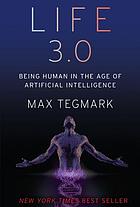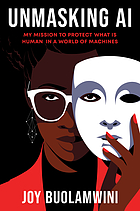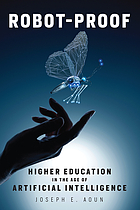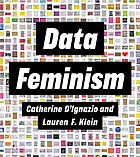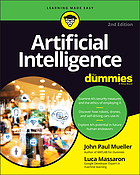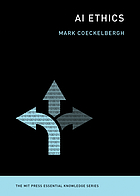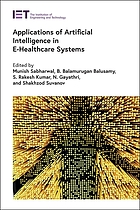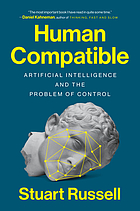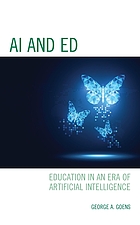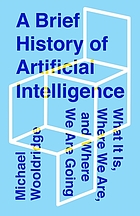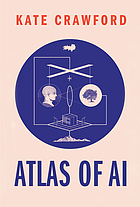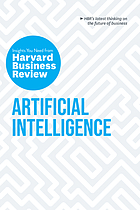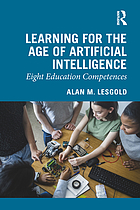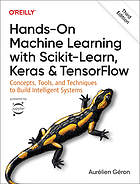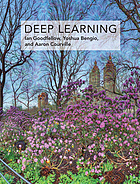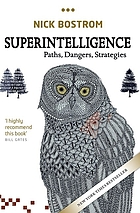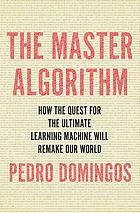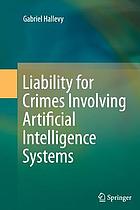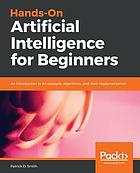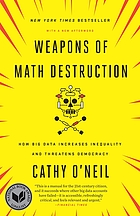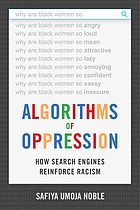Overview

Everyone is talking about ChatGPT, but there are thousands of AI applications available online. Visit There's an AI For That, to explore a site that uses AI to collect AI tools into a searchable database that updates daily!
Overview
Welcome! This research guide provides an overview of Artificial Intelligence (AI) including popular tools sorted by purpose, definitions of common terms, historical timeline, people to know, policies, ethics, news, videos to get you started, library books, databases, and even an intro to playing with AI. AI may seem overwhelming at first, but remember, you are probably already using AI in your everyday life--navigation assistance while driving, facial recognition to unlock your phone, editing suggestions in documents or emails, personal digital assistants like Alexa, etc. Use this guide to build your background knowledge on AI and to grow your understanding of related ethical issues, so that you can make informed decisions about when and how to use AI tools.
AI Tools to Explore by Purpose
-
ResearchRabbitThis AI-powered tool lets the user set up collections and then add articles either by searching through ResearchRabbit or by uploading article pdfs. Once an article has been uploaded it can be used to generate a list and visualization of related papers. ResearchRabbit promises to be "free forever for researchers." Other features include integration with Zotero, collaboration and resource sharing options, commenting tool, and more.
-
Elicit by OughtCan retrieve journal articles and other sources in response to entering a research question. Will also automatically generate literature review matrices for saved and uploaded resources. These literature review matrices can include abstract or article summaries; study methodologies including participants, setting, interventions; study findings, implications, and limitations; and more. Free sign-up includes 5000 credits.
-
Connected PapersWith Connected papers, you can explore papers in your research field using graphs. You may discover more papers than traditional literature searches. The free version of this resource allows you to create 5 resource mappings per month.
-
Semantic ScholarFree AI tool for academic research with focus on sciences. Can set up a personal profile and upload articles of interest which then provide input for the AI to find similar articles and other resources. It reports citation numbers and citation types for each resource.
-
Grammarly/Grammarly PremiumGrammarly assists with checking spelling, grammar, word choice, clarity and tone suggestions, and more. Grammarly Premium offers additional features but comes with a $12/month fee for students ($15/month for business) after a free trial.
-
WordTuneFree version allows for 10 text rewrites per day. The AI tool will recommend ways to rewrite text based on your tone selection and instructions (expand, shorten, etc.). Additional plans start at $9.99/month.
-
DALL-E 2OpenAI's image generation tool. Enter a description of the visual output you'd like to see and DALL-E 2 will produce images to "match." DALL-E 3 is available within Microsoft's AI-powered Bing Chat.
-
Stable Diffusion WebStable Diffusion Web XL Playground allows users to input text prompts to generate images without having to create a log-in. Because there is no log-in required, it does not save work after image is downloaded.
-
DreamStudio by Stability AIEnter a text prompt to generate images. Two cool features include the option to select a style such as enhance, anime, comic book, low poly, etc. and the option to enter a negative prompt of what to avoid. The free version requires and log-in and provides a limited number of prompt entries.
-
InVideoText-to-video feature allows for uploading of text files such as blog materials for AI-powered text-to-speech and video generation. Free version offers access to video templates, a standard media library, and AI script generation but created videos cannot be exported.
-
SynthesiaAI-powered video creation tool which includes library of video templates, ethnically diverse stock avatars, text to voice features with over 120 languages available, and capacity for customization and bringing in external content. Users can only create one free video before paid subscription is required.
-
CanvaAs part of its Magic tools, Canva's Magic Design allows users to quickly create videos by entering a text description of what the video should be about and using uploaded images and other elements. The university provides campus access to Canva.
-
Otter.aiAn AI meeting assistant that records audio, writes notes, automatically captures slides, and generates summaries.
-
PlayHTAI-powered text to speech tool and voice generator. Account creation is required for free version to be able to store, access, and download generated files using cloud. Free version provides limited use: 5,000 words per month and access to try voice cloning. Free account restricted to non-commercial use and attribution to PlayHT is required. Student and educator discount is available for paid subscription.
-
Murf AIGenerates audio speech from text input and also can create voice-overs from users' uploaded recordings. Free version is Open Studio which requires a log-in but no credit card and offers limited usage: 10 minutes each of voice generation time and audio transcription and no downloads--only links to share generated content
-
ChatGPTAn AI tool that relies on a large language model and training data to create text responses to prompts entered by users. It works like a chatbot in that it "converses" with the user as it generates output. While ChatGPT is frequently used to generate paragraphs of texts or lists, it can also produce tables, graphs, and blocks of code. The free ChatGPT requires an account sign-up, stores projects, allows downloads, and undergoes some updates. ChatGPT Plus requires a paid subscription and uses a more advanced language model.
-
Perplexity.ai with and without coPilotPerplexity.ai offers a free version that can be used like a search engine, but it provides full answers to questions. It also includes sources to the information provided in its responses. Adding the coPilot option allows users to see the steps taken for the search. A paid version is available that offers additional features. Responses can be saved.
-
Bing ChatMicrosoft's former Bing search engine is now powered with AI (GPT-4), the same technology underlying ChatGPT Plus. Users can enter text prompts and request output in the form of paragraphs, code, tables, graphs, etc. Use of Bing is generally free but requires a login and use of the Microsoft Edge browser.
Historical Timeline of Artificial Intelligence
This image is widely used online. One source: Deep Learning Analytics
Definitions of Common Terms
-
AlgorithmA set of ordered instructions that are used to solve a problem based on some understanding of available options. Algorithms are used heavily in computer science and mathematics but also have relevance to other fields like philosophy.
-
Artificial Intelligence (AI):"The capability of a computer system to show human-like intelligent behavior characterized by certain core competencies, including perception, understanding, action, and learning...An AI application refers to the integration of AI technology into a computer application field with human–computer interaction and data interaction" (Wirtz, Weyerer, & Geyer, 2018, p. 599).
-
Artificial Intelligence (AI) Model"A component of an information system that implements AI technology and uses computational, statistical, or machine-learning techniques to produce outputs from a given set of inputs."
-
Classic, Narrow, or Weak AIAI that can only function within the parameters for which it has been programmed (Wirtz, Weyerer, & Geyer, 2018).
-
Deep Learning"A type of machine learning based on artificial neural networks in which multiple layers of processing are used to extract progressively higher level features from data" (Oxford Languages definition retrieved using Google).
-
Foundation(al) ModelLarge language model that is trained on a broad set of data and then can be re-used in a range of tasks. There are both possibilities and risks inherent in this type of model (Bommasani et al., 2021; Murphy, 2022)
-
Generative Pretrained Transformer (GPT)"A GPT is a language model relying on deep learning that can generate human-like texts based on a given text-based input. A user “feeds” the model with a sentence, and the transformer creates coherent paragraph-based information extracted from publicly available datasets. The technology can process any type of text, including guitar tabs or computer code" (Atelier Services, 2023)
-
Large Language Model (LLM)A statistical model used in neural networks that assigns probabilities to word sequences and then is able to make predictions about which word might occur in a particular place in a sequence. Examples include GPT-3, GPT-4, and PaLM2. (Carlini et al., 2021; Petroni et al., 2019)
-
Machine Learning (ML)ML is a subset of AI that uses data to identify patterns, make predictions, and in other ways apply its “understanding” to situations beyond what it was originally programmed for.
-
Natural Language Processing (NLP)The capacity of computer systems and the code employed to analyze, interpret, and generate language as it is naturally written or spoken (Aydin & Erdem, 2022)
-
Red teamingA process of revealing flaws or potential vulnerabilities in AI models or systems. These efforts can be aimed at improving safety (reducing harm to users causes by system malfunctions) and/or security (defending systems from malicious actors).
-
Strong AI or Artificial General Intelligence (AGI)AI that uses unsupervised ML and is able to transfer the “understanding” it has gained to new situations and toward the accomplishment of new goals which have not been pre-determined (Goertzl, 2014; Pham & Sampson, 2022).
-
Supervised Machine LearningInvolves some human processing of data (labeling/tagging) before it is fed into an AI system (Celik et al., 2022)
-
Unsupervised Machine LearningML that can process data without it being labeled by humans (Celik et al., 2022).
People to Know -- Use the < > Symbols to See More

Fei-Fei Li
Co-Director of the Stanford Institute for Human-Centered Artificial Intelligence and former director of the Stanford AI Lab, Dr. Li is frequently called "Godmother of AI" because of her long history in the field. Her past work included the invention of ImageNet and ImageNet Challenge which served as a large dataset and benchmarking effort that made current advancements in deep learning and AI possible. She co-founded and presently chairs the non-profit AI4ALL that aims to increase participation and opportunity in AI education for diverse learners from under-represented backgrounds.

Sam Altman
Chief Executive Officer (CEO) of OpenAI, the non-profit and associated company that developed ChatGPT and opened it for free public use on Nov. 30, 2022. He was one of the original founders of the OpenAI research laboratory, along with other high-profile people in the technology industry including Greg Brockman, Reid Hoffman, Jessica Livingston, Peter Thiel, and Elon Musk.

Joy Buolamwini
Earned her PhD in computer science from Massachusetts Institute of Technology (MIT) and founded the advocacy nonprofit Algorithmic Justice League to raise awareness and promote strategies for mitigating algorithmic bias and potential harms of AI, especially involving facial recognition software. Learn more about her work by watching the documentary Coded Bias or reading her book Unmasking AI: My Mission to Protect What Is Human in a World of Machines.

Andrew Ng
Founder of DeepLearningAI and founder and CEO of LandingAI. He also teaches computer science as an adjunct professor for Stanford University. He is recognized as a leader in open, global education and wants to make AI education and training available to all companies and individuals seeking it.

Yann LeCun
French computer scientist, machine learning researcher, and faculty member at New York University, often referred to as a "Godfather of AI" along with Geoffrey Hinton and Yoshua Bengio. He serves as a Vice President and Chief AI Scientist at Meta, and formerly worked as Facebook's Director of AI Research. Much of his research involved convolutional neural networks.

Margaret Mitchell
Chief Ethics Scientist at Hugging Face, a machine learning company. Her research and past work include AI evaluation and ethics, Bayesian modeling and information extraction, natural language generation, computer vision-to-language generation, and assistive technologies more broadly. Before Hugging Face, she worked as a Staff Research Scientist at Google AI and founded Google's AI Ethics group.

Geoffrey Hinton
Emeritus Distinguished Professor of Computer Science at the University of Toronto and Chief Scientific Advisor to the Vector Institute of Artificial Intelligence. His focus has been artificial neural networks. He stepped down from a role at Google as a Vice President and Engineering Fellow in late spring 2023 and has expressed concerns about progressing too quickly with AI.

Daniela Rus
Professor of Electrical Engineering and Director of the Computer Science & Artificial Intelligence Lab (CSAIL) at the Massachusetts Institute of Technology (MIT). Her current research projects include self-driving vehicles for on-demand mobility, robot development with soft materials, and rapid robot development.

Ian Goodfellow
Computer scientist who works at Deep Mind and is known for his work in artificial neural networks, machine learning, and deep learning. His main contribution to the field was inventing generative adversarial networks (GANs) to allow computers to create images. This technology underlies the creation of deep fakes, although Goodfellow got into the work through his interest in improving cybersecurity.

Timnit Gebru
Founder of Distributed AI Research (DAIR) Institute and former co-lead of Google's Ethical AI Research Team who earned her PhD from Stanford University. She also did postdoctoral research for Microsoft Research on their Fairness, Accountability, Transparency, and Ethics (FATE) in AI group. DAIR currently engages in AI research that is intentionally disconnected from big tech companies.

Stuart Russell
Professor of Computer Science at the University of California, Berkeley, and Honorary Fellow at Wadworth College, Oxford, in the UK, he works with students at the Berkeley AI Intelligence Research (BAIR) Lab. In 2023, he was named to a Time100 AI list by Time, LLC, as one of the most influential people in the field. His co-authored text Artificial Intelligence: A Modern Approach, written with Peter Norvig and originally published in 1994/1995 as a breakthrough resource in the field, is now in its 4th edition, which was released in 2020.

Atefeh (Atti) Riazi
Current Chief Information Officer (CIO) for the Memorial Sloan Kettering Cancer Center and Executive Director of CIOs Without Borders and former CIO of the United Nations. She advocates at the global level for AI use to benefit humanity and also for increased education and employment opportunities for girls and women in STEM.
Play with AI
No coding required!
-
Teachable MachineThis tutorial walks you through how to create a machine learning models in 3 steps: 1) Gather, group, and add sample data. 2) Train and test the model until it performs acceptably. 3) Export the model for use in other projects.
-
Do Not Touch Your Face"Using your webcam, you train a machine learning algorithm (specifically Tensorflow.js) to recognize you touching your face and not touching your face. Once it's trained, it watches and alerts you when you touch your face" (from the website). This tool was built by Mike Bodge, Brian Moore, and Isaac Blankensmith.
-
Machine Learning for KidsGame that walks through the steps of using ML to train a model to recognize text, images, numbers, or sounds. Then the player can export the model into other programs.
A&M-SA Syllabus Statement Options on Generative AI Use
The attached document includes the four options provided to faculty by the Office of the Provost in late August 2023.
Breaking News
This just in...
-
US authors suing Anthropic can band together in copyright class action, judge rules"July 17 (Reuters) - A California federal judge ruled on Thursday that three authors suing artificial intelligence startup Anthropic for copyright infringement can represent writers nationwide whose books Anthropic allegedly pirated to train its AI system."
-
Meta Says It Won’t Sign EU’s AI Code, Calling It Overreach"(Bloomberg) -- Meta Platforms Inc. said it won’t sign the code of practice for Europe’s new set of laws governing artificial intelligence, calling the guidelines to help companies follow the AI Act overreach."
-
U.S. Copyright Office issues highly anticipated report on copyrightability of AI-generated works"(Reuters) -- The United States Copyright Office has released Part 2 of its Report on Copyright and Artificial Intelligence which addresses the copyrightability of AI-generated works. It maintains that human authorship and creativity remain essential in the quest to obtain copyright protection for works involving materials created by artificial intelligence.
Policy Recommendations
-
US Department of Education: Report on AI and the Future of Teaching & LearningThe U.S. Office of Educational Technology released this report in May 2023. It includes recommendations to guide educators and education systems toward making responsible choices in AI adoption and use.
-
UNESCO: Ethics of AIUNESCO leads the international effort to ensure that science and technology develop with strong ethical guardrails.
-
Universal Guidelines for AI from Center for AI & Digital Policy (CAIDP)The CAIDP's Universal Guidelines for AI were originally published in 2018 and celebrated their 5-year anniversary in Oct. 2023 with an event in Washington, DC, and online. The event emphasized the continued usefulness of the guidelines while offering room to explore future updates.
-
Ethical Guidelines on the Use of Artificial Intelligence & Data in Teaching & Learning for EducatorsThis document published by the Directorate General for Youth, Sport, and Culture of the European Commission present "ethical guidelines on AI and data usage in teaching and learning are designed to help educators understand the potential that the applications of AI and data usage can have in education and to raise awareness of the possible risks so that they are able to engage positively, critically and ethically with AI systems and exploit their full potential."
AI, Publishers, & Copyright
-
Evolving Journal Guidelines for Use of AIThis August 2023 article by Debraj Manna on the researcher support website Editage describes some of the issues arising in academic publishing concerning the use of AI, especially generative AI.
-
Copyright and AIThe Copyright Office has launched an initiative to examine the copyright law and policy issues raised by artificial intelligence (AI) technology, including the scope of copyright in works generated using AI tools and the use of copyrighted materials in AI training.
-
Writing and Citing with AI - Statement from ElsevierOne example of a statement by academic publishers. Authorship implies responsibilities and tasks that can only be attributed to and performed by humans.
Ethics & AI Literacy
-
AI Ethics and Fairness ModuleThis module, by Benedetta Giovanola, is one part of a larger, freely available AI Ethics: Global Perspectives course. Composed of a video and supplementary materials, the module explores the ethical concept of fairness and the different approaches used to develop and calibrate fairness in automated decision making algorithms--all of which have limited effectiveness.
-
Making AI Inclusive: 4 Guiding Principles for Ethical EngagementRecommendation document by the Partnership on AI nonprofit organization that includes academic, industry, and community partners and engages in work designed to direct technological development in ways that enhance and positively impact society.
-
Teaching AI Literacy in Higher EducationArticle in eCampus News by Leo S. Lo, Dean, College of University Libraries & Learning Sciences at the University of New Mexico. It presents ethical issues faced by students and faculty that are exacerbated without clear policies and knowledge-building resources related to AI. Makes the point that both using and not using AI can lead to inequities in opportunities and outcomes.
Videos
-
What are Generative AI Models?In this 8:00-minute video, Kate Soule from IBM does a great job of explaining different concepts associated with generative AI. She also describes pros and cons of using foundational models that have been developed using huge amounts of unlabeled data.
-
Bias in AIBias in training data can be a very big problem for AI systems. This 2-minute video by the U.S. National Institute of Science & Technology (NIST) offers a concise overview of why this should be a concern for developers and adopters of AI tools.
-
AI Explained WSJ Tech News BriefThere is so much being said about artificial intelligence these days. In order to understand this latest wave of AI, it is important to know how it works and why this moment is different from developments in the past.
-
How Will AI Change the World?TED-Ed explores the current limitations of artificial intelligence and the possibility of creating human-compatible technology.
News
-
Last Week in AI NewsBased on the podcast of the same name by Skynet Today, this website includes summaries of the most recent happenings in the AI field along with links to both news and academic journal articles.
-
Open AI BlogOpen AI (the developer of ChatGPT) announces its new products and initiatives here.
-
MIT News: AIThis site promotes MIT’s research, innovations, teaching and newsworthy events and people to the campus community, the news media and the general public. Frequent updates concerning AI work are shared.
-
In Machines We Trust PodcastProduced by MIT Technology Review, the podcast explores the rise of AI through the voices of people reckoning with the power of the technology, and by taking listeners up close with the inventors and founders whose ambitions are fueling the development of new forms of AI.
-
Inside Higher Ed Artificial Intelligence ColumnInside Higher Ed provides the latest news, analysis and solutions for the entire higher education community. The site has a column dedicated to AI in higher education.
-
Human-Centered Artificial Intelligence (HCAI)The mission of HAI is to advance AI research, education, policy and practice to improve the human condition.
-
OECD Wonk Blog"Not all intelligence is artificial. Keep yours real with the AI Wonk blog."
Databases
-
ACM Digital Library (Association for Computing Machinery) This link opens in a new window Provides bibliographic information, abstracts, index terms, reviews, and the full-text for ACM conference proceedings.ACM DIGITAL LIBRARY (ASSOCIATION FOR COMPUTING MACHINERY) HAS AN UPDATED INTERFACE THAT WENT LIVE JANUARY 1.
-
Computer Source (EBSCO) This link opens in a new window Contains full-text journal and magazine articles covering topics such as computer science, programming, artificial intelligence, cybernetics, information systems, robotics, and software.
-
IEEE Xplore Digital Library (IEEE) This link opens in a new window The IEEE Xplore digital library provides access to the world's highest quality technical literature in electronics, electrical engineering, computing, biomedical engineering and related technologies. This includes full text access to over 5.4 million documents including IEEE journal articles, magazine articles, conference papers, and active standards.
-
Technology Collection (ProQuest) This link opens in a new window The Technology Collection is a full-text database supported by a specialized A&I file. Its content covers comprehensive scholarly output and is managed by an expert editorial team overseeing content selection and indexing supported by a controlled vocabulary.
-
Advanced Technologies & Aerospace Database (ProQuest) This link opens in a new window The Advanced Technologies & Aerospace Database provides extensive coverage of advanced technology literature, offering full-text access with comprehensive discovery through extensive abstracts and indexes structured using controlled vocabulary managed by expert editorial teams. Topics covered include aeronautics, astronautics, communications, computer and information technology, electronics, lasers, solid-state materials and devices, space sciences, and telecommunications.
-
Chronicle of Higher Education (Chronicle of Higher Education) This link opens in a new window Great source for higher education news and jobs. Features the complete contents of the latest issue; daily news and advice columns; current job listings; an archive of previously published content; discussion forums; and career-building tools.
Acknowledgement
This guide was created by Kimberly S. Grotewold, Education Librarian and Rachel Pecotte, Business Librarian.
University Library, (210) 784-1500, library@tamusa.edu, Library Hours, Schedule an Appointment with a Librarian



